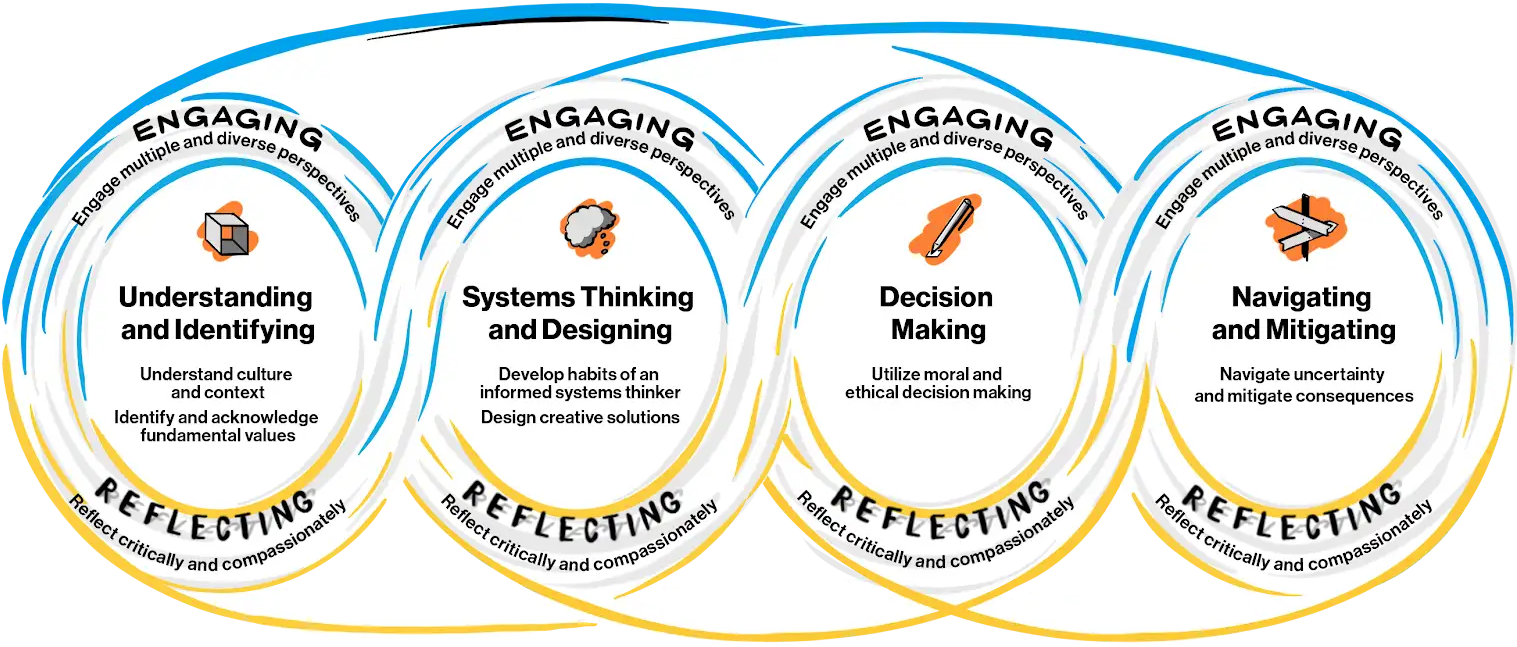The PI approach
The PI approach provides an iterative, structured process for integrating PI principles to drive meaningful, values-based innovation and promote human flourishing.
An iterative process
The Principled Innovation approach provides a comprehensive framework that emphasizes moral agency and human flourishing throughout the innovation process. It guides groups through four distinct, yet flexible phases, encouraging the integration of the eight PI practices at each step. This approach ensures that innovation is not only creative but also ethically grounded and socially responsible.

The role of Communities of Practice
Central to this approach are Communities of Practice (CoPs), which are collaborative groups where individuals with shared interests come together to learn from each other and advance their practice. Within CoPs, participants engage in reflective, creative, and ethical discussions about the real-world projects being worked on, applying PI principles to drive meaningful change. This collective effort fosters an environment where innovation is deeply connected to core values, promoting positive outcomes for individuals and communities alike.